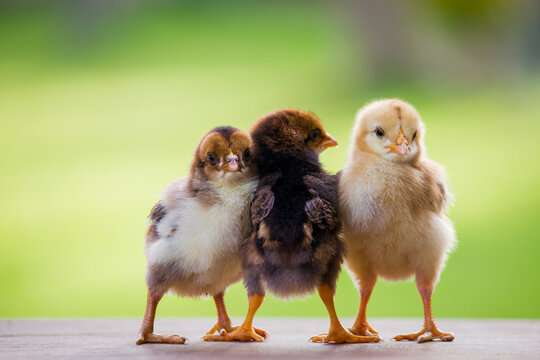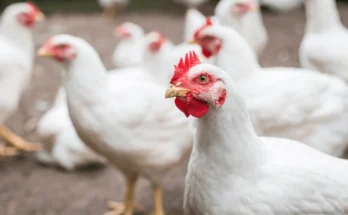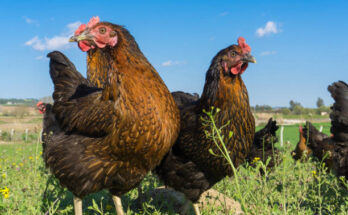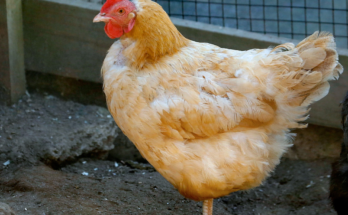The Social Nature of Chickens: Exploring the Chicken Mind
Are chickens social creatures? What goes on inside the chicken mind? Understanding the social behavior of chickens is crucial for anyone looking to raise them, whether for companionship, eggs, or meat. This blog post delves into the intriguing world of chicken socialization and cognition, shedding light on the complexities of these fascinating birds. By exploring the dynamics of chicken interactions, we aim to provide valuable insights for both experienced chicken keepers and those new to the endeavor. Join us as we unravel the enigma of the chicken mind and uncover the depth of their social nature.
Understanding Chicken Social Behavior
Chickens are naturally social creatures, and their behavior is largely influenced by their natural instincts and social structure.
Natural Instincts and Social Structure
In the wild, chickens form flocks with a clear social structure. They rely on safety in numbers and establish a pecking order within the flock. This social hierarchy helps maintain order and reduces conflict. Within a flock, each chicken has a specific role and understands its place within the social structure.
Communication Among Chickens
Chickens communicate with each other through various vocalizations, body language, and facial expressions. They use different sounds to convey messages about danger, food, or even to establish their position within the pecking order. Understanding these communication cues is essential in comprehending their social dynamics.
Role of Pecking Order
The pecking order determines the hierarchy within a chicken flock. It establishes a clear chain of command, with dominant chickens at the top and submissive ones at the bottom. This order helps minimize conflict and create a stable social environment. It also determines access to resources such as food, water, and nesting space, ensuring that all chickens have their essential needs met.
Understanding these aspects of chicken social behavior can provide valuable insights into their interactions and help ensure their well-being in a domestic setting.
Benefits of Social Interaction for Chickens
Social interaction plays a vital role in the well-being of chickens, offering various benefits that contribute to their overall health and happiness.
Reduced Stress and Anxiety
Chickens are social creatures, and interactions with their flock members help reduce stress and anxiety. When chickens engage in social behaviors such as grooming, vocalizations, and communal living, they establish a sense of security and comfort within their environment. This reduces the likelihood of stress-related issues and promotes a harmonious coexistence within the flock.
Promoting Health and Well-being
Social interaction among chickens also contributes to their physical health and overall well-being. When chickens engage in social activities, they are more likely to exhibit natural behaviors such as foraging, dust bathing, and exercising. These activities promote physical fitness, reduce the risk of obesity, and contribute to better overall health. Additionally, social interactions can enhance the mental stimulation of chickens, preventing boredom and its associated negative effects.
Social interaction is a fundamental aspect of a chicken’s life, offering numerous benefits that contribute to their holistic well-being and happiness. By fostering a social environment for chickens, owners can ensure that their feathered companions lead fulfilling and contented lives.
Next, we will explore the Impact of Social Isolation on Chickens.

The Chicken Mind: Cognitive Abilities
Chickens are often underestimated when it comes to their cognitive abilities. Although they may not have the same cognitive capacity as some of the more well-studied animals, they are surprisingly intelligent creatures.
Learning and Memory
Chickens have shown impressive learning and memory capabilities. They are able to recognize and remember different individuals, including both humans and other chickens. Studies have demonstrated that they can remember specific events and learn from previous experiences, allowing them to adapt their behavior in various situations. This indicates a level of cognitive sophistication that is often overlooked.
Problem-Solving Skills
In addition to their learning and memory abilities, chickens also possess problem-solving skills. They are capable of using logical reasoning to figure out how to access food and water, navigate their environment, and even outsmart predators. Their ability to strategize and adapt to new challenges showcases their cognitive flexibility and problem-solving acumen.
Overall, the cognitive abilities of chickens are more complex and developed than commonly assumed. Understanding and appreciating their intelligence can lead to better care and management practices for these social creatures.
Social Interaction in Domesticated Settings
Domesticated chickens, contrary to popular belief, are highly social creatures and thrive in environments that allow for interaction and socialization. Understanding the impact of their environment on social behavior and the integration of new flock members is crucial for maintaining a harmonious and flourishing chicken community.
Impact of Environment on Social Behavior
The social behavior of chickens is significantly influenced by their environment. A well-structured and spacious coop provides ample room for chickens to engage in natural social behaviors such as pecking order establishment, communal roosting, and ground scratching. When chickens have the freedom to express themselves in a stress-free environment, it fosters positive social dynamics and facilitates healthier interaction among flock members. On the other hand, overcrowded or confined spaces can lead to increased aggression, stress, and disruptive social hierarchies.
Creating a stimulating environment with enrichments such as perches, dust-bathing areas, and hiding spots encourages chickens to engage in natural social behaviors, ultimately contributing to their overall well-being and social harmony within the flock.
Integration of New Flock Members
The introduction of new chickens to an existing flock is a delicate process that can significantly impact social dynamics. Chickens are highly territorial and establishing a new pecking order is inevitable when introducing new members. To minimize aggression and social disruption, gradual integration is key.
Introducing new chickens during the evening when the existing flock is roosting can help mitigate initial aggression, as chickens are less inclined to establish dominance in the dark. Additionally, providing multiple food and water stations can reduce competition and create opportunities for positive social interactions. Monitoring the flock closely during the integration period allows for intervention if any aggressive behavior arises, ensuring a smoother transition and harmonious social integration.
Understanding the influence of environment on social behavior and implementing strategic approaches to integrate new flock members fosters a positive and thriving social community within domesticated chicken settings.
Ethical Considerations and Best Practices
When it comes to raising chickens, it’s important to consider the ethical implications and best practices for their well-being. Providing social enrichment and avoiding loneliness and isolation are critical aspects of ethical chicken care. Read more about keeping your flock happy and stress less.
Importance of Providing Social Enrichment
Chickens are highly social creatures and thrive in environments where they can interact with others. By providing social enrichment, such as ample space to roam, perches for roosting, and opportunities for dust bathing, you can promote their natural social behaviors. Additionally, introducing new flock members gradually can help prevent social disruptions and enable them to form cohesive groups.
Avoiding Loneliness and Isolation
Loneliness and isolation can have detrimental effects on chickens’ mental and physical well-being. To prevent this, it’s essential to provide a stimulating environment with companionship and activities. Utilizing toys, such as hanging cabbage or mirrors, can offer mental stimulation and alleviate boredom. Regular human interaction and supervised free-range time can also help prevent feelings of isolation.
By prioritizing social enrichment and minimizing loneliness and isolation, you can ensure that your chickens lead happy and fulfilling lives, contributing to their overall welfare and happiness.
Conclusion
Recognizing chickens as social creatures with complex cognitive abilities is crucial in understanding and appreciating these fascinating animals. Through their intricate social structures, communication methods, and emotional intelligence, chickens exhibit a level of complexity that is often overlooked. By acknowledging and respecting their social nature, we can promote better welfare practices and enrich the lives of these intelligent beings. Embracing the depth of the chicken mind opens up new opportunities for compassionate care and further research into the remarkable world of avian cognition.


